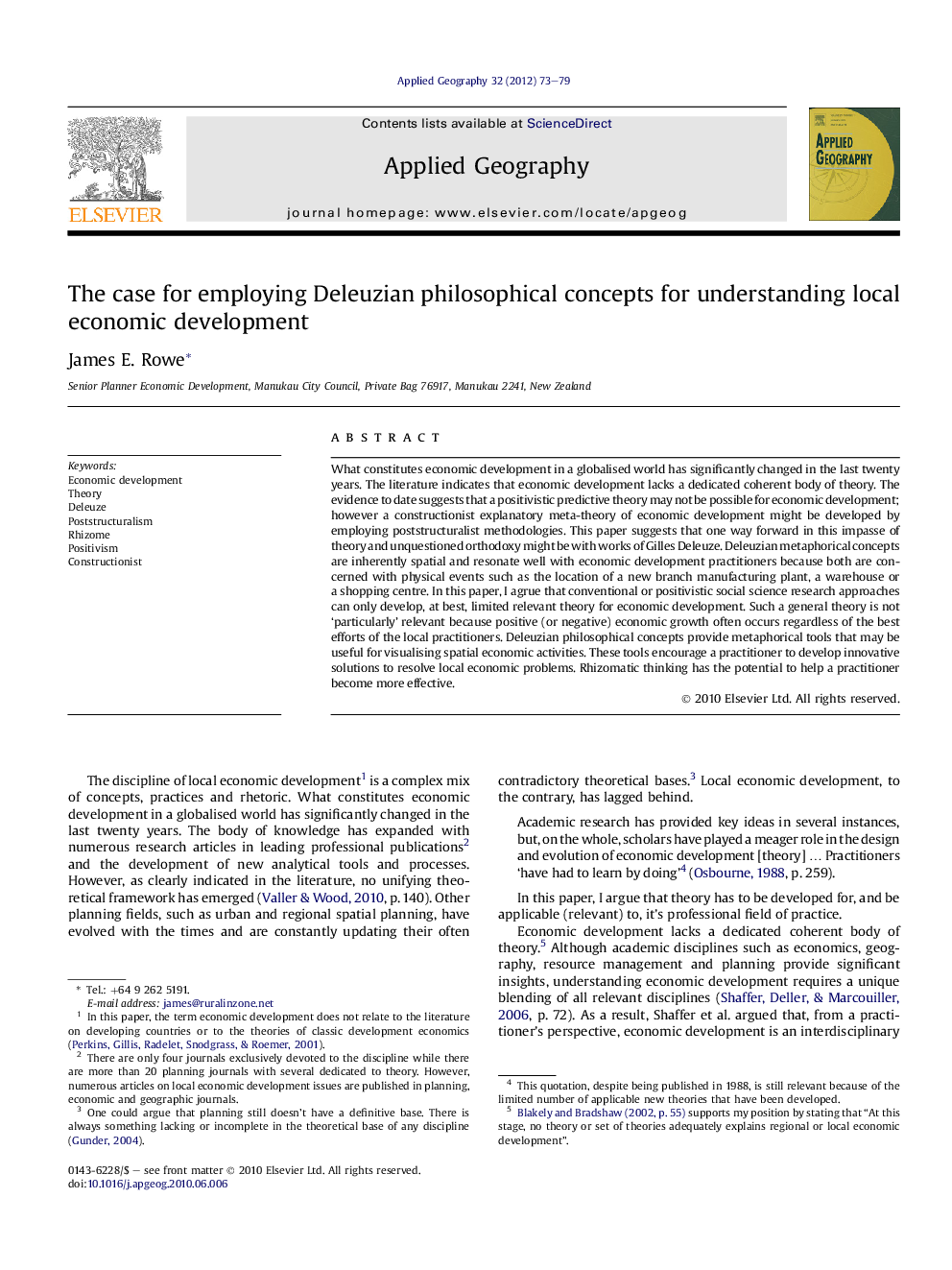| کد مقاله | کد نشریه | سال انتشار | مقاله انگلیسی | نسخه تمام متن |
|---|---|---|---|---|
| 83520 | 158724 | 2012 | 7 صفحه PDF | دانلود رایگان |

What constitutes economic development in a globalised world has significantly changed in the last twenty years. The literature indicates that economic development lacks a dedicated coherent body of theory. The evidence to date suggests that a positivistic predictive theory may not be possible for economic development; however a constructionist explanatory meta-theory of economic development might be developed by employing poststructuralist methodologies. This paper suggests that one way forward in this impasse of theory and unquestioned orthodoxy might be with works of Gilles Deleuze. Deleuzian metaphorical concepts are inherently spatial and resonate well with economic development practitioners because both are concerned with physical events such as the location of a new branch manufacturing plant, a warehouse or a shopping centre. In this paper, I agrue that conventional or positivistic social science research approaches can only develop, at best, limited relevant theory for economic development. Such a general theory is not ‘particularly’ relevant because positive (or negative) economic growth often occurs regardless of the best efforts of the local practitioners. Deleuzian philosophical concepts provide metaphorical tools that may be useful for visualising spatial economic activities. These tools encourage a practitioner to develop innovative solutions to resolve local economic problems. Rhizomatic thinking has the potential to help a practitioner become more effective.
Journal: Applied Geography - Volume 32, Issue 1, January 2012, Pages 73–79